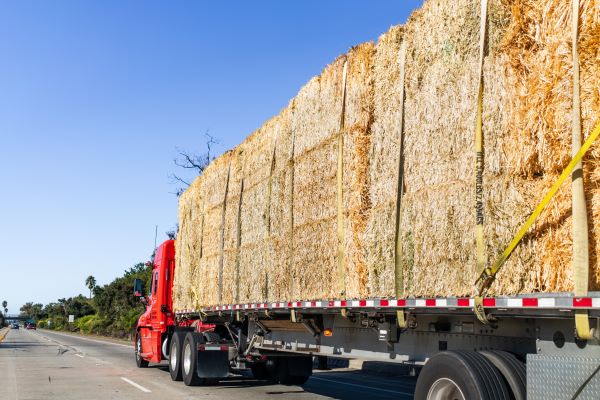Fun with math! Sharpen your pencil, and grab a notepad. What is this, retro math? Let me rephrase: grab your cellphone, hit the utilities icon, employ the calculator function.
Here’s the puzzle: if you own two horses, both about 1,100 lb (500 kg) and both eating about 1.5% of their body weight of hay each day, how much hay will you need for 200 days of winter?
Go!
Based on these figures, you’d need about 6,600 lb (3,000 kg) of hay to get from one end of winter to the other. If the average square bale from your supplier weighs 50 lb (22 kg), that works out to a minimum of 132 bales.
Tips for Hay Buyers
Provided a horse owner has access to enough hay storage space, it is sometimes more economical to purchase an entire winter supply of hay at one time. Hay producers will often sell hay less expensively when large orders are placed.
Not enough room in the loft? Some hay producers will allow you to keep the hay stored on their property so long as it is already purchased. These arrangements allow horse owners to pick up hay as needed.
If you’re shipping hay from a faraway region, considering gathering a group of horse owners and splitting one large shipment into manageable quantities. This spreads transportation costs over multiple horse owners, making it more affordable.
Scout hay sales, scan classified ads in local newspapers and agricultural publications, and peruse bulletin boards at tack shops for hay suppliers. Baled hay purchased at feed stores is usually more expensive than hay found elsewhere.
Err on the side of surplus. Not all bales in the original lot might be usable, so it’s always advantageous to have more hay than necessary. As long as older hay is stored in optimal conditions, it can be used without detriment to your horses.
Are you feeding your horse an all-hay diet? The nutrient content of fresh and preserved forages differs somewhat, so if you are feeding an all-hay diet, your horse will require vitamin and mineral supplementation for optimal health. You may choose a balancer pellet, usually available from your feed store, or a research-proven supplement.











